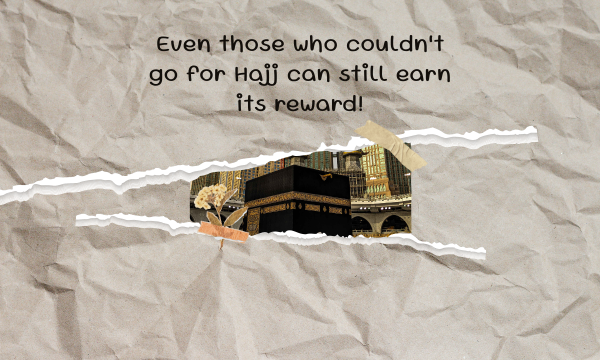The incident of Karbala occurred nearly 50 years after the passing of the Prophet Muhammad ﷺ and the completion of the religion of Islam. Although it was a historical tragedy, the martyrdom of Hussain (may Allah be pleased with him) gave Satan an opportunity to spread numerous innovations (bid’ah) and misguidances. As a result, some people — under the guise of so-called “love” — begin, from the very sighting of the Muharram moon (especially on the 10th), to adopt practices such as wearing black clothing, hoisting black flags, performing wailing and chest-beating rituals, constructing symbolic replicas of shrines (ta‘ziyas and taboot), slapping their faces, crying loudly, and going without food and water. They walk barefoot — regardless of heat or cold — and recite elegies (nohas and marsiyas). Women remove their jewelry. Mourning processions are held, and some people even wound themselves with chains and blades. Juices and water are distributed in the name of Hussain (may Allah be pleased with him) and the other martyrs.
In contrast, the true Sunnah on this day is to fast, as practiced and recommended by the Prophet ﷺ. Avoiding weddings and joyful gatherings during Muharram (although there is no such prohibition in the Shari‘ah of Muhammad ﷺ) is baseless. Otherwise, the entire year would be spent mourning the martyrdoms of many noble companions. Annual mourning for the martyrdom, hurling curses and insults at the great Sahabah (companions), and attributing fabricated and absurd claims to them, especially those who had no connection whatsoever with the events of Karbala, is unjust.
Fabricated Stories and False Narratives
The books recited and narrated during these events are often filled with lies and falsehoods, meant to open new doors of discord and to divide the Muslim Ummah. The truth is that all of these innovations and corrupt practices are part of a planned campaign to promote and strengthen a particular sectarian ideology. These rituals often disturb public peace, as is well known. Islam, however, is a religion of peace and harmony.
Unfortunately, many of our Sunni brothers, either by imitation or due to extensive propaganda, have begun practicing similar innovations, things that have no place in Islamic Shari‘ah and are clearly classified as bid‘ah (innovation) and misguidance, which Islam strictly prohibits. These individuals, believing they are honoring the sacred month, in reality, desecrate its sanctity, and instead of earning reward, they heap sin upon themselves and enroll their names among the disobedient ones before Allah and His Messenger ﷺ.
Modern Customs: Un-Islamic and Unfounded
Throughout the month of Muharram, especially regarding the martyrdom of Hussain (may Allah be pleased with him) and the events of Karbala, fictional, fabricated, and weak stories are colorfully narrated in markets, shops, on the radio and TV, and in various gatherings. The speakers cry, and they cause the listeners to cry as well. The most ironic part is that the same people who narrate these false tales of Karbala and fabricated stories of water being cut off from the oppressed martyrs are the ones who enjoy juices and musical gatherings during Muharram. Martyrdom is a noble honor, one which Hussain (may Allah be pleased with him) attained. A martyr is alive, not dead.
Many Sunni brothers and sisters, either due to blind following or propaganda, commit the following innovations:
Examples of Common Innovations (Bid’ah) in Muharram:
- Mourning Gatherings (Majalis-e-Shahadat):
In these, Sunni audiences express grief in a way that mirrors the practices of the Shia gatherings. - Reciting Noha and Marsiya:
Recited at homes or gatherings, often after listening to them on TV, YouTube, or the radio. - Turning cooking stoves upside-down on the 10th of Muharram to signify mourning.
- Newly-wed women returning to their parents’ homes on the Day of ‘Ashura.
- Women removing jewelry as an expression of grief over the martyrdom of Hussain (may Allah be pleased with him).
Superstitions and False Beliefs
In addition to these, many superstitious beliefs have taken root, such as:
- Believing that intimacy between husband and wife during the first ten days of Muharram will result in unfortunate or mentally weak offspring.
- Considered the month of Shawwal unlucky and did not marry in it. This belief was once common among ignorant Arabs who also deemed Shawwal an unlucky month. To refute this, the Prophet ﷺ married Sayyidah A’ishah (may Allah be pleased with her) in Shawwal.
Islam does not recognize such baseless hardships. People should not avoid marriages during Muharram. Islam has prescribed that no mourning should exceed three days for any deceased individual, except for a widow, who is to observe four months and ten days. Even then, she does not repeat this mourning annually.
Another Fabrication: “Kajiyaan” and “Thotiyan”
One more practice with no basis in Qur’an or Sunnah is the filling of kajiyaan and thotiyan (local terms for clay containers), something entirely unrelated to the martyrdom of Hussain (may Allah be pleased with him). On the morning of the 10th, men and women pour milk or lassi into these vessels and fill others with halwa or kheer to distribute among children. Others use clay bowls to distribute sweet dishes or cook large pots of haleem for public distribution.
Graveyard Rituals in Muharram
Another un-Islamic practice that has become widespread is the whitewashing of graves at the start of Muharram. As the 10th approaches, graveyards begin to bustle. On the morning of the 10th, families—including young women and daughters-in-law — head to cemeteries. Flower and incense stalls are set up, and men and women gather to sprinkle mud over graves. This leads to several religious violations, such as intermingling of genders, lack of hijab, and women leaving home without a mahram. After sprinkling mud, they distribute sweets over the grave and falsely believe that if sweets aren’t distributed, the deceased remains burdened.
All of this is pure fabrication and baseless innovation. The purpose of visiting graves, as taught by the Prophet ﷺ, is to remember the hereafter. When such visits turn into festive social events, the intended spiritual reminder is lost. Islam has not specified any particular day for visiting graves, so restricting it to one date contradicts the Shari‘ah. While it is permissible to repair a damaged grave, fixing a date for it, or cementing or decorating graves is not allowed.
The best graveyard in the world is Jannat al-Baqi in Madinah. During the Prophet’s time ﷺ and the era of the Companions, no such practices were carried out there on the 10th of Muharram — no crowds, no decorations, no mud, and no flower rituals.













Leave a Reply